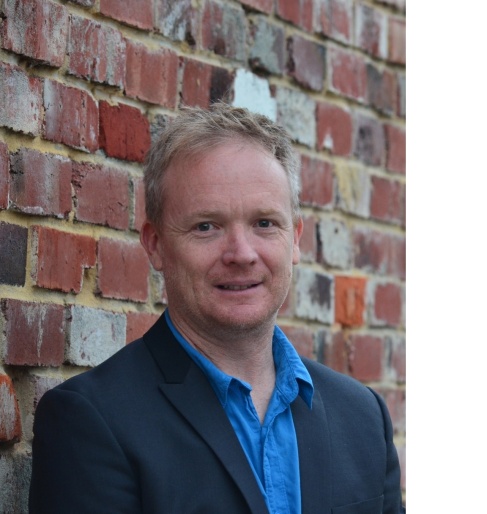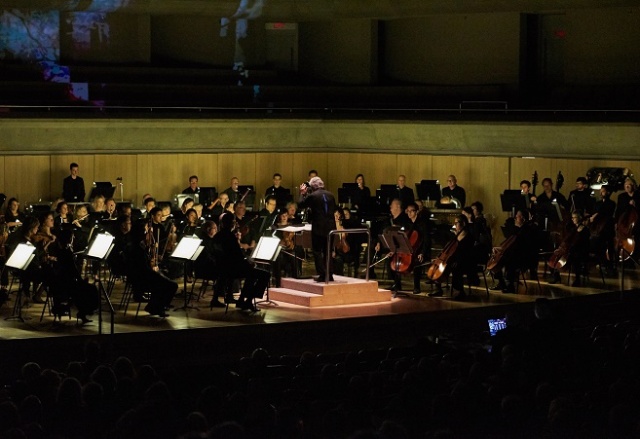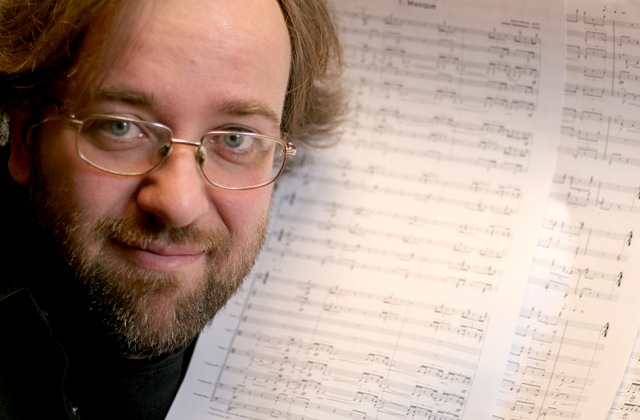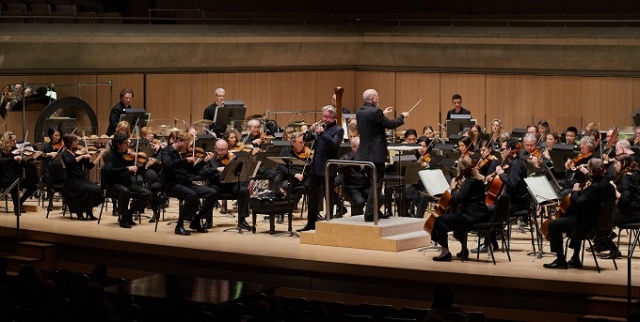The second of the New Creations concerts by the Toronto Symphony Wednesday at Roy Thomson Hall was a wildly diversified program as Festival curator Brett Dean put a collaborative work by two Canadians between works by two Australian composers. Each work seemed unsurpassable: until the next composition that is.

Composer James Ledger
We began with James Ledger’s Two Memorials (for Anton Webern and John Lennon), the work giving its name to the evening’s concert. After Ledger explained some of his rationale in a recent interview I was sitting on the edge of my seat, eager to hear how the two composers might be reconciled in the same composition. The piece wanders around before finally deciding to be powerfully elegiac, but this too makes sense considering the brutally casual way both of these men were killed. Webern—who seems to be closer to Ledger’s native compositional voice—is there at the beginning, while Lennon takes a bit longer to show himself. When he does manifest himself it’s rather subtle, as for instance in gentle rhythms in four that sound like something from a pop song but with a great deal more complexity.
It’s apt for the day when we all heard of the passing of George Martin, the Beatles’ producer and a significant influence upon the band, particularly in its last few years. Ledger said in the program note that
“The latter memorial also contains recorded samples of Webern’s memorial played in reverse—an effect that typifies the type of studio trickery The Beatles were experimenting with in the mid-1960s.”
…which of course means George Martin. At times we seemed to be exploring one of Webern’s influences, namely Mahler, who seemed to peek through the pages a couple of times, particularly for a big bad chord reminiscent of his 10th Symphony. Or maybe it’s simply that the eventual meeting place for Lennon & Webern was tonal & regular in rhythm, verging on chorale solemnity. Ledger brought us home with an especially powerful last 3 minutes.

Peter Oundjian leading the TSO in Frehner and Mettler’s From the Vortex Perspective (photo: Malcolm Cook). I suspect that’s Mettler partially occluding the computer monitor in the first row.
From a Vortex Perspective, the next item on the program was a World Premiere, described as a work for “live cinema and orchestra derived through a cyclical exchange of musical and visual propositions between composer Paul Frehner and filmmaker Peter Mettler.”
Interviewed before the performance by conductor Peter Oundjian, Mettler spoke of a chicken and egg relationship between music and film in the collaboration, possibly because we are likely tempted to ask which came first. Usually –in film scoring–one observes two options, where either
- the music responds to the film (in most film-scores the music is added after the film has been made),
or - the film responds to the music (as in films such as Fantasia or 2001: A Space Odyssey).
But this was another option altogether, as the film and the music seemed to create a shared discourse, resembling a true conversation. Early in the film we saw natural images including something resembling a forest, and sure enough we heard something in the music that seemed to match this motif. Mettler supposedly edited and mixed live in response to the performance, although I have to take that on faith, as I couldn’t really tell. As the title might suggest, we were watching images that spun around in various ways. We saw dervishes and water and abstract patterns, at times very intensely active, at other moments much calmer. Because the film was largely abstract, there was no pressure to match the images to the music.

Composer Paul Frehner
Last on the program was Brett Dean’s Dramatis personae, a trumpet concerto in three movements featuring Hakan Hardenberger. As in Dean’s viola concerto (heard last Saturday), we were again watching an intense conversation between the soloist and the orchestra that verged on a portrayal of hostilities.

Soloist Hakan Hardenberger beside composer & conductor Brett Dean leading the TSO (photo: Malcolm Cook)
The first movement subtitled “Fall of a Superhero” calls the trumpet “the embodiment of goodness”, requiring a broad array of mutes, tonguings, attacks, bent pitches. The exuberance of the writing, particularly Dean’s unrestrained demands on Hardenberger’s virtuosity, make this one of the most appealing trumpet concerti. A contrasting second movement titled “Soliloquy” is far gentler in its sound, as if the hero pauses in their struggles, to reflect and to rest.
To close, Dean gives us something jovial and celebratory, an uplifting answer to the tragic overtones of the first movement. Inspired by Charlie Chaplin this last movement is called “The Accidental Revolutionary”, a trumpet surrounded by swirling march-tunes as if an uprising were erupting before us. Eventually the soloist seems to abdicate his role as soloist, as he wanders over to the trumpet section in a display of solidarity with the other trumpets. I would love to hear this piece again, even if it may be something beyond most other trumpeters.
New Creations closes Saturday night with a program titled Knocking at the Hellgate.
